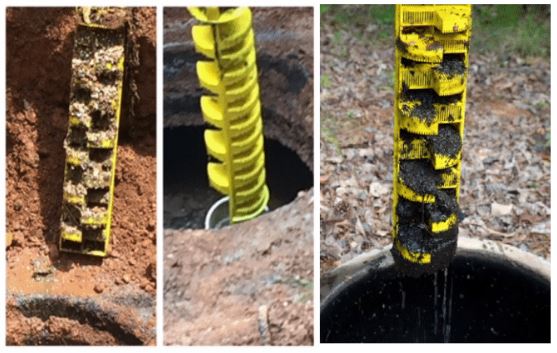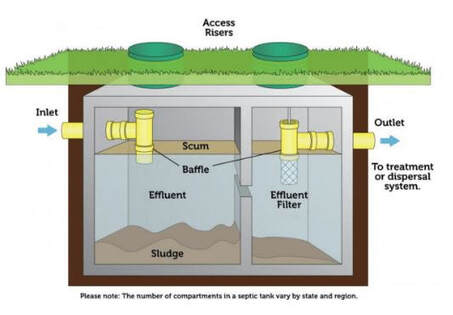HOW TO MAINTAIN A SEPTIC SYSTEM
Did you know that as a homeowner you’re responsible for maintaining your septic system? Did you know that maintaining your septic system protects your investment in your home?
The proper operation and maintenance of a septic system is critical to its longevity.
1. Inspect your system regularly.
2. Pump the septic tank once every three to five years depending on household and tank size. Pumping your septic tank is probably the single most important thing you can do to protect your system. If the buildup of solids in the tank becomes too high and solids move from the tank to the drain field, this could clog and strain the system to the point where a new drain field will be to be installed.
3. Clean your effluent filter. An effluent filter is a filter that is installed on the drain side of your septic tank. It helps to keep any solid waste from flowing out of your tank, causing problems in your drain field or leading to failure or clogs in your outgoing septic tank line.
Did you know that as a homeowner you’re responsible for maintaining your septic system? Did you know that maintaining your septic system protects your investment in your home?
The proper operation and maintenance of a septic system is critical to its longevity.
1. Inspect your system regularly.
2. Pump the septic tank once every three to five years depending on household and tank size. Pumping your septic tank is probably the single most important thing you can do to protect your system. If the buildup of solids in the tank becomes too high and solids move from the tank to the drain field, this could clog and strain the system to the point where a new drain field will be to be installed.
3. Clean your effluent filter. An effluent filter is a filter that is installed on the drain side of your septic tank. It helps to keep any solid waste from flowing out of your tank, causing problems in your drain field or leading to failure or clogs in your outgoing septic tank line.
|
4. Use water wisely. The most effective way to conserve water around the house is to take stock of how it is going to waste. Immediately repair any leaking faucets or running toilets, and use washing machines and dishwashers only when full.
5. Know what not to flush. What you put in your septic system greatly affects its ability to do its job. As a general rule of thumb, do not dispose of anything in your septic system that you can easily put in the trash. Your system is not a garbage disposal, when excess materials go down the drain; solids build up in the septic tank and need pumped out. |
|
SEPTIC SYSTEM MAINTENANCE CONTRACTS
For commercial systems or systems on an operating permit MSS | Mastin Septic Services offers customized maintenance contracts that take care of your maintenance needs including system monitoring and record keeping. Call us for a quote for maintaining your system. |
PROTECT YOUR SYSTEM
It is important to protect your system form potential damage:
- Do not plant anything but grass over or near your septic system. Roots from some shrubs and trees can cause damage by plugging or even rupturing the drainage pipe.
- Do not allow anyone to drive or operate heavy machinery over any part of the system.
- Never build a structure over or install an above ground swimming pool over the leach field.
It is important to protect your system form potential damage:
- Do not plant anything but grass over or near your septic system. Roots from some shrubs and trees can cause damage by plugging or even rupturing the drainage pipe.
- Do not allow anyone to drive or operate heavy machinery over any part of the system.
- Never build a structure over or install an above ground swimming pool over the leach field.


